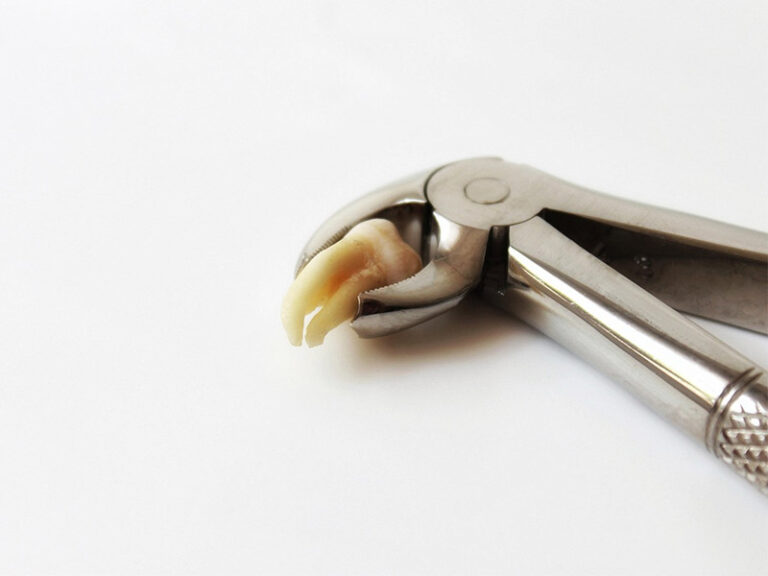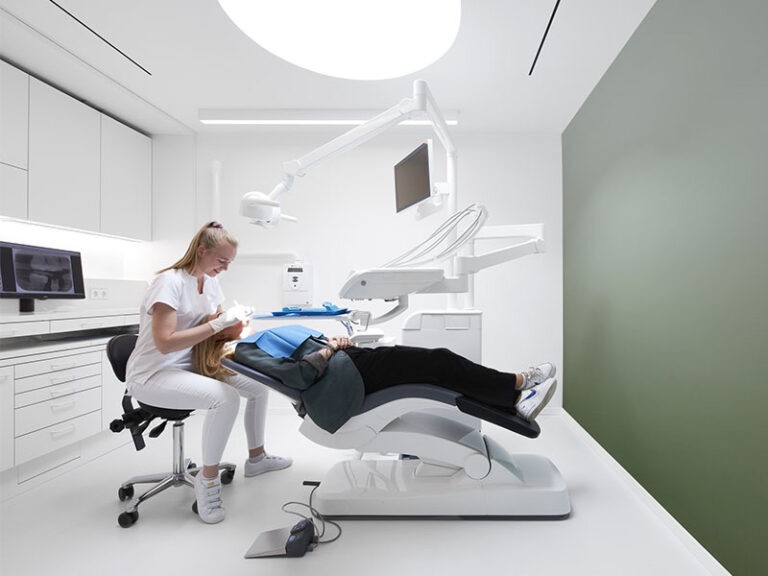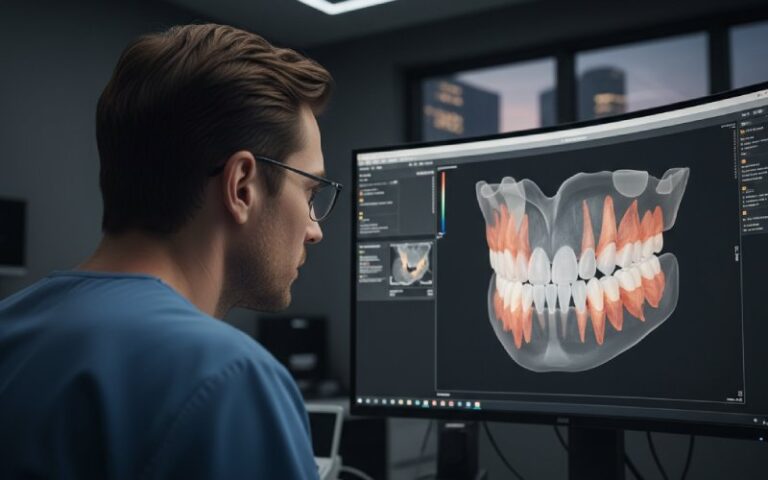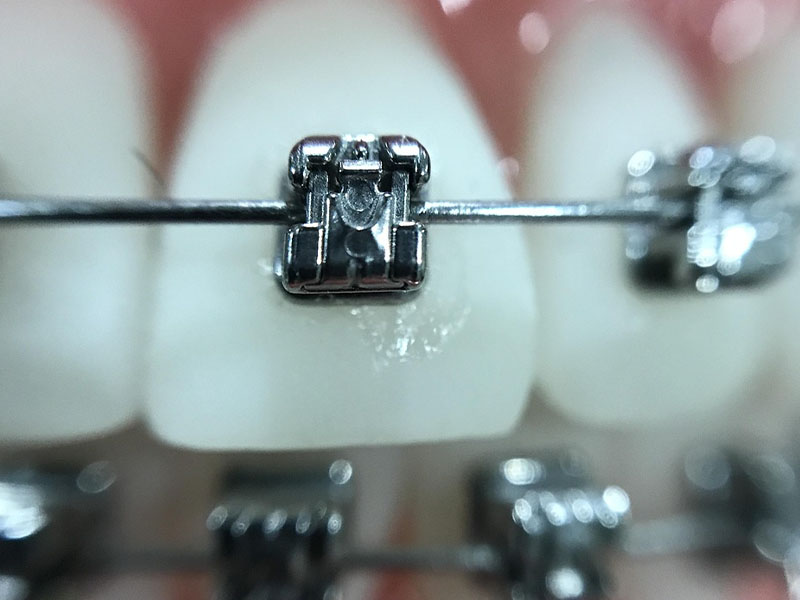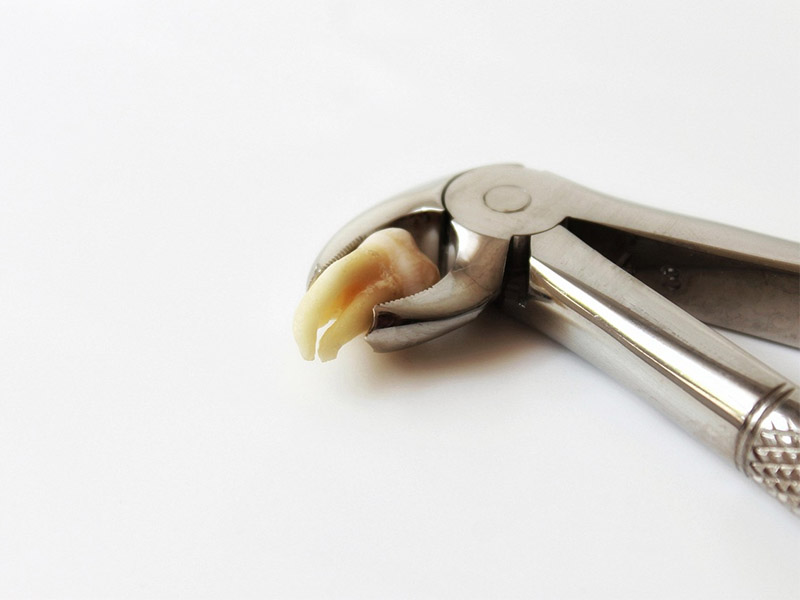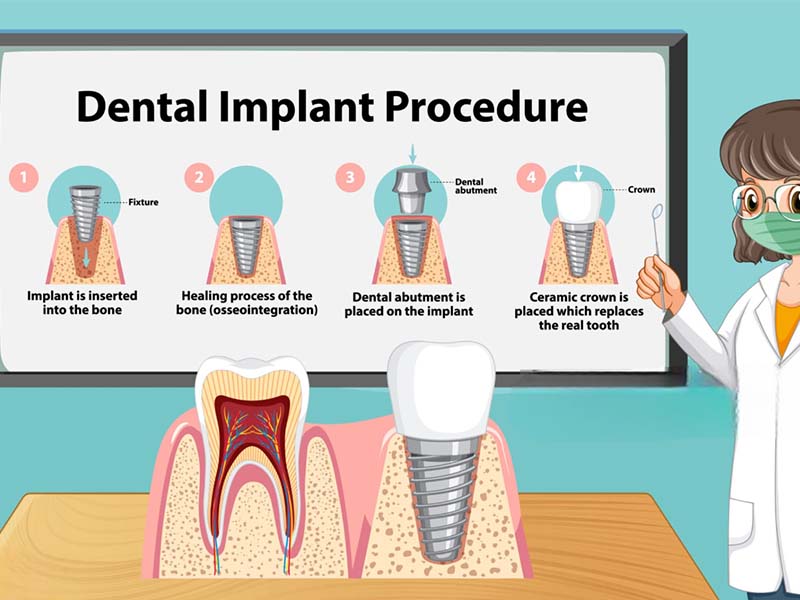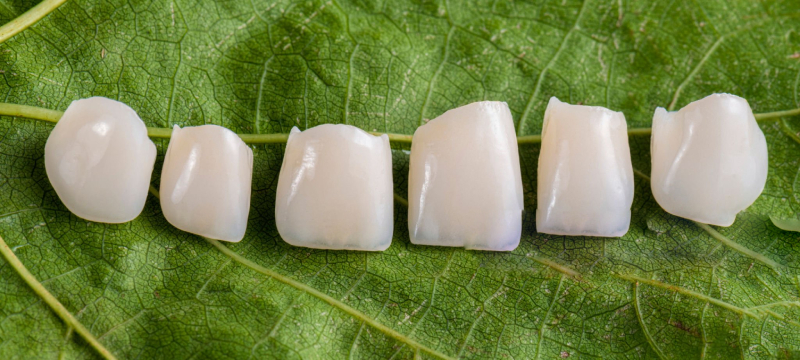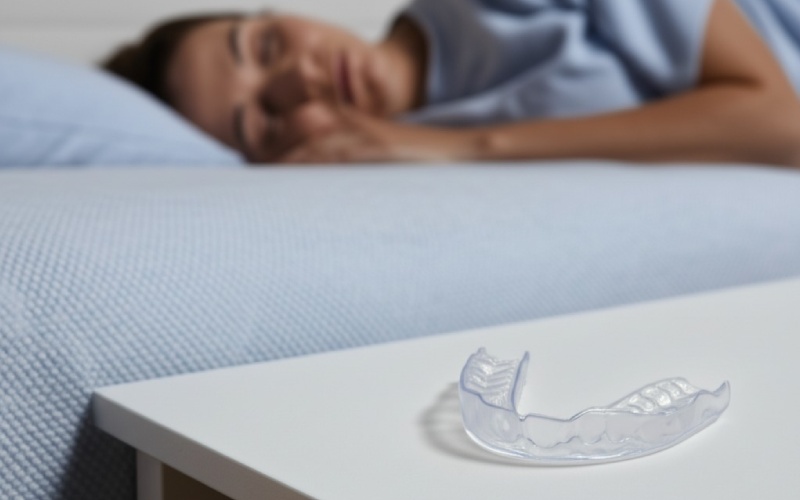
Votre guide des matériaux pour protège-dents nocturnes : décryptage de l’acrylique, du BPA, du phtalate et des meilleurs cas d’utilisation
The night guard material makes a huge difference. It affects comfort, how well it works, and even safety. In this article, I’ll share the different types of materials, from soft plastics to hard acrylic. We will look at why one type might be better for your specific needs. You will learn about potential chemicals like BPA and phthalate. By the end, you will know exactly what to ask your dentist to get the best and safest guard for you.
Table des matières
What Is Bruxism and Why Do I Need to Protect My Teeth?
Finding out you have bruxism can be a surprise. The first sign can be a dull headache every morning. Bruxism is the medical term for teeth grinding and clenching. Many people do it while they sleep and have no idea. This constant grinding can wear down your tooth enamel. It can cause chipped teeth, jaw pain, and even damage your jaw joint. A night guard is a simple but powerful tool. It’s a protective layer that sits between your upper and lower teeth.
The goal of a night guard is to protect your teeth from damage. It doesn’t stop the grinding, but it takes the hit instead of your tooth surfaces. Think of it as a helmet for your smile. A good night guard material absorbs the force from the clench. This can help relieve soreness in your jaw muscles and prevent future dental problems. Getting the right appliance is a key step in managing your dental health. For any patient with bruxism, this is a non-negotiable part of their care.
What Are the Main Types of Night Guard Material?
The three big ones are soft, hard, and hybrid. Protections souples are typically made from a flexible, rubbery material. Hard guards are made from a firm, rigid acrylic. Hybrid guards, as you might guess, combine both.
The type of night guard material a dentist recommends depends on the patient and their needs. The severity of the bruxism is the most important factor. Someone who grinds heavily needs a different solution than someone with a mild case. Your overall dental health and comfort preferences also play a big role. We will explore each of these types and best use cases in more detail. Understanding these options is the first step for any patient looking for relief.
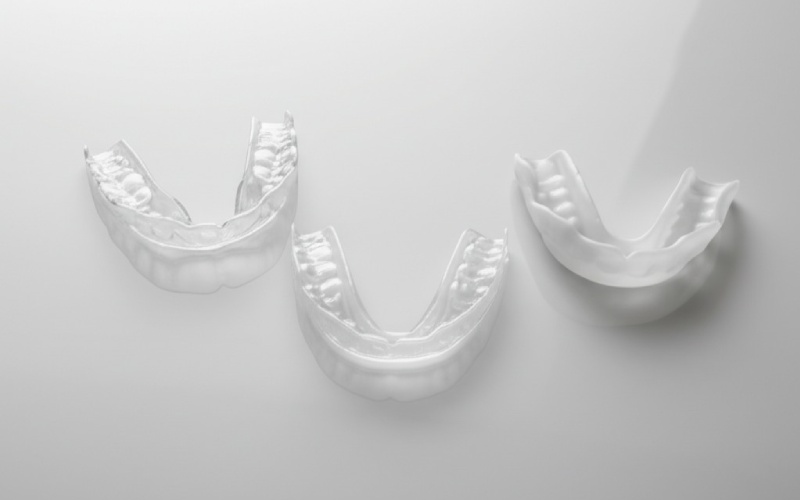
Are Soft Night Guards the Right Choice for Every Patient?
Soft night guards are often the first thing people think of. They are made from a soft, pliable material. The most common one is ethylene-vinyl acetate, or EVA for short. This is a type of soft plastic that feels a bit like rubber. These soft guards are very comfortable at first. Because they are flexible, they are easy to get used to. They are a great choice for a patient with mild bruxism or for people who only clench their jaw without much grinding.
However, soft night guards are not for everyone. If you have severe bruxism, you might chew through a soft guard very quickly. Some studies even suggest that the soft, chewy texture can encourage a patient to clench more. So, while they are comfortable, they are not the most durable option. They are a good starting point and can provide a lot of relief for the right person. A dental professional can help you decide if a soft guard is enough to protect your tooth health.
When Should a Patient Consider Hard Night Guards?
Protections renforcées are made from a very firm acrylic. This material is much more durable than the soft EVA plastic. It feels very different in your mouth. There is no “chewiness” to it. Instead, it provides a smooth, slippery surface. This is important because it allows your teeth to slide freely instead of grinding against each other.
Hard night guards are the best choice for a patient with moderate to severe bruxism. Because the material is so tough, it offers the best protection for your tooth enamel. A well-made hard splint can last for many years, making it a great investment. They are custom-made in a laboratoire dentaire to fit your bite perfectly. While it might take a little time to get used to the hard feel, the significant benefits for long-term dental health are worth it. These guards reduce wear and tear on your teeth and can help lessen jaw pain.
What About Hybrid Guards: The Best of Both Worlds?
What if you want the comfort of a soft guard but need the durability of a hard one? That’s where a hybrid guard comes in. A hybrid night guard has two layers. The inside, which touches your teeth and gums, is soft and pliable. The outside, which makes contact with the opposing teeth, is made of a hard, durable acrylic. This clever design gives you the best of both worlds.
The soft inner layer makes the appliance comfortable and helps it stay in place. The hard outer layer provides the tough protection needed to handle heavy grinding. The hard surface of the splint prevents you from chewing on the guard itself. This is a fantastic option for any patient who finds hard guards too uncomfortable but needs more protection than soft guards can offer. The soft material is often used to line hybrid night guards to improve comfort and patient compliance.
How Is a Custom Night Guard Made in a Dental Lab?
The difference between a store-bought guard and a custom night guard is night and day. A custom-made guard from a dental lab is built just for you. The process starts at your dental office. In the past, the dentist would take a physical impression of your teeth using a gooey material. That mold would then be sent to a dental lab. The lab technicians would use it to create a perfectly fitting guard.
Today, many clinics use digital dentistry. This is a much cleaner process. Your dentist will use a small camera to take a digital scan of your teeth. This creates a perfect 3D model of your mouth on a computer. The digital file is sent to the dental lab instantly. There, advanced dental technology and digital workflows are used to make your guard with amazing precision. Whether by impression or scan, the goal is the same: to create a night guard material splint that fits perfectly, providing the best protection and comfort for the patient. The lab plays a vital role in your dental care.
What Is Acrylic and Why Is It Used in a Dental Appliance?
When we talk about hard night guards, we are really talking about acrylic. Acrylic, or more formally, polymethyl methacrylate, is a type of hard plastic. It’s the same kind of durable material used in dentures and other dental restorations. The reason it’s so popular in dental work is because it’s strong, long-lasting, and can be molded very precisely. A rigid acrylic guard provides a solid barrier that is almost impossible to chew through.
The primary ingredient is a chemical called methacrylate. When processed correctly in a dental lab, it becomes a very stable and safe material. The hardness is its biggest benefit for bruxism. It creates an ideal occlusal surface—that’s the term for the part of the guard your teeth bite on. This surface is designed to take all the abuse from grinding, saving your tooth enamel. Using an acrylic splint is a key strategy to prevent long-term damage for a patient with severe grinding habits. The lab ensures the acrylic-based materials are cured correctly for safety and durability.
Is My Night Guard Safe? A Look at BPA and Phthalate
We hear a lot about chemicals in plastics, so is your night guard safe? Two chemicals you might hear about are BPA (bisphenol A) and phthalate. BPA is a chemical used to make certain hard plastics. Phthalate is often used to make plastics softer and more flexible. Some studies have linked these chemicals to health issues, so it’s right to be concerned about them being in something you wear in your mouth all night.
The good news is that most modern dental materials are now BPA-free and phthalate-free. High-quality night guards are made in professional dental lab facilities that follow strict safety rules. The acrylic used for hard plastics does not contain BPA. The soft materials, like EVA, used for soft guards are also typically BPA-free. When you get a custom night guard from your dentist, you can and should ask for confirmation that it is BPA-free. Reputable labs and dental suppliers make sure their plastic products are safe for medical use. It’s important to educate patients on this topic to build trust.
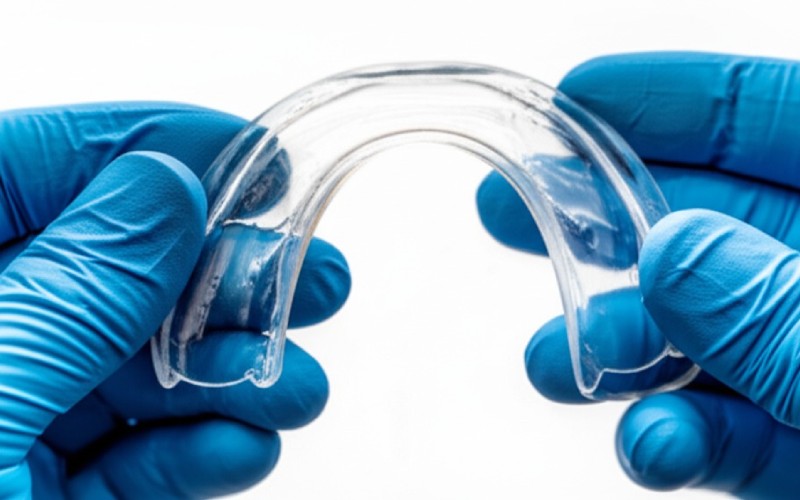
What Questions Should I Ask My Dentist?
Being an informed patient is the best way to get great care. Don’t be shy about asking your dentist questions. First, ask what night guard material they recommend for you and why. Ask about the hardness and if it matches your level of bruxism. If they recommend a hard guard, ask if it’s made from BPA-free acrylic. If they suggest a soft guard, ask if it is made from BPA-free EVA.
You should also ask about the process. Will they be taking a digital scan or a physical impression? Ask about the lab they work with. A good dental office is happy to share this information. Finally, ask about adjustment and follow-up. A new splint might need a small adjustment to make the bite perfect. Open communication with your dental team ensures you get an appliance that is safe, comfortable, and effective.
How Does the Right Guard Improve Patient Compliance?
At the end of the day, a night guard only works if you wear it. This is what doctors call patient compliance. If a guard is uncomfortable, painful, or doesn’t fit right, you’ll probably stop using it. This is why getting the right night guard material and a custom fit is so important. When a guard feels good, you are more likely to wear it every single night.
Good patient compliance leads to better results. You will see a reduction in symptoms like headache and jaw soreness. Your tooth surfaces will be protected from wear. This is a team effort between you, your dentist, and the dental lab. A custom-fit guard made from the right material leads to high compliance. This protects your investment in your dental health and helps prevent more serious problems down the road. When the patient is comfortable, the treatment is successful.
Key Takeaways to Remember:
- Bruxism (teeth grinding) can cause serious dental damage, and a night guard is the best way to protect your teeth.
- There are three main types of guards: soft (EVA), hard (acrylic), and hybrid (a combination of both).
- The best night guard material for you depends on the severity of your grinding. Soft guards are for mild cases, while hard night guards are for more severe grinders.
- A custom night guard from a dental lab offers a far better fit and more durability than over-the-counter options.
- Ask your dentist to ensure your guard is made from a BPA-free and phthalate-free material for your safety.
- Comfort is key to patient compliance. A well-made guard you wear every night provides the most significant benefits.

